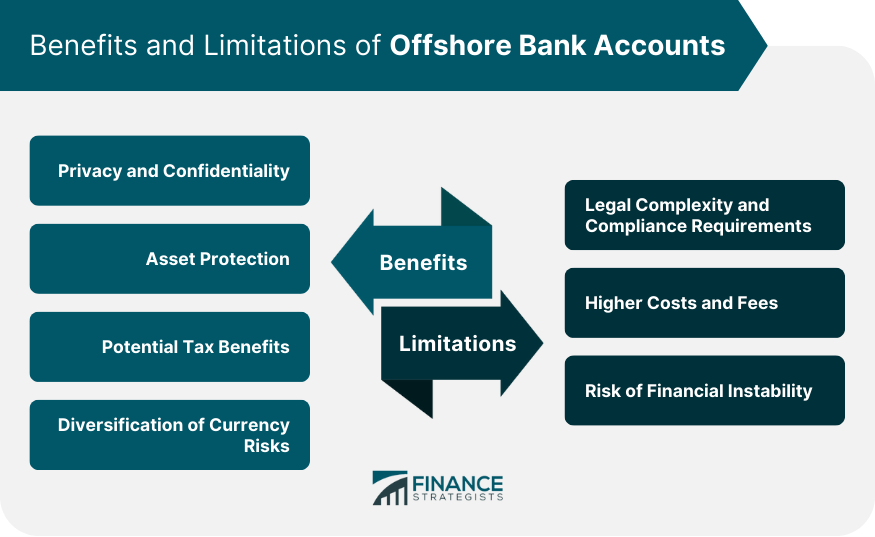How Offshore Business Formations Job: A Step-by-Step Review for Business Owners
Offshore business formations can give considerable advantages for entrepreneurs looking for tax obligation optimization and property protection. The procedure entails multiple crucial steps, beginning with mindful territory option and extensive documentation prep work. Involving specialist solutions is essential for compliance. Many ignore the recurring responsibilities that follow first enrollment. Recognizing these intricacies can make a substantial difference in leveraging overseas opportunities successfully. The following actions are important for lasting success.
Recognizing Offshore Business: What They Are and Why They Issue
The concept of offshore firms may seem complicated, recognizing their fundamental nature and relevance is vital for both individuals and organizations looking for to maximize their financial methods. Offshore firms are entities signed up outside the individual's nation of home, typically in territories that use favorable regulatory settings. These organizations can supply various benefits, such as tax obligation optimization, property defense, and improved privacy.
For entrepreneurs, developing an overseas business can facilitate international profession, minimize functional expenses, and expand market reach. Additionally, offshore companies usually enable for structured compliance with global regulations. People may likewise make use of overseas frameworks to protect personal properties from economic or political instability in their home countries. Inevitably, the charm of overseas business lies in their ability to improve monetary flexibility and give critical advantages in a progressively interconnected global economic climate - Offshore Company Formations. Understanding their operational framework and advantages is important for making educated choices
Selecting the Right Territory for Your Offshore Business
Picking the appropriate jurisdiction for an overseas firm is vital for making the most of tax obligation advantages and making sure compliance with local policies. Different jurisdictions offer varying tax obligation motivations and regulatory settings that can considerably impact company operations. Subsequently, a careful assessment of these aspects is necessary for informed decision-making.
Tax Obligation Benefits Summary
When taking into consideration the establishment of an offshore business, understanding the tax obligation benefits related to various territories is crucial. Various areas use unique benefits, such as low or absolutely no business tax prices, which can substantially improve success. Some territories provide tax obligation incentives for certain sorts of services, attracting entrepreneurs looking for reduced tax responsibilities. In addition, certain nations implement beneficial tax obligation treaties that decrease dual taxation on international earnings, guaranteeing that organizations preserve even more incomes. The selection of territory also influences value-added tax (BARREL) and other regional taxes. Entrepreneurs should evaluate these elements carefully to select a place that lines up with their service objectives, maximizing tax obligation performance while continuing to be certified with worldwide policies.
Regulatory Setting Considerations
Selecting the appropriate jurisdiction for an offshore firm needs an extensive understanding of the regulatory setting, as different nations impose varying degrees of compliance and governance. Business owners must assess variables such as legal frameworks, tax obligation laws, and reporting commitments. Jurisdictions like the British Virgin Islands and Cayman Islands are typically favored for their business-friendly laws and minimal coverage requirements. On the other hand, some countries might impose strict regulations that might make complex procedures and enhance costs. In addition, the political security and credibility of a territory can influence the lasting practicality of the overseas firm. As a result, cautious consideration of these governing aspects is important to assure that the selected jurisdiction lines up with the business's operational needs and critical objectives.
Preparing the Necessary Documents
Preparing the essential documents is an essential action in the overseas business development process. Entrepreneurs need to collect numerous lawful and recognition papers to facilitate their company's establishment in an international jurisdiction. Commonly, this includes an in-depth service strategy detailing the company's purposes and functional methods. Additionally, individual identification documents, such as tickets or driver's licenses, are required from the business's investors and supervisors.
In a lot of cases, evidence of address, like utility costs or bank declarations, is required to validate the identifications of the entailed celebrations. Particular types determined by the jurisdiction, consisting of application forms for registration, should be completed precisely. Some jurisdictions may additionally need a statement of the nature of organization tasks and conformity with neighborhood policies. Extensively preparing these files guarantees a smoother registration process and assists mitigate possible hold-ups or difficulties, ultimately setting a strong foundation for the overseas entity.
Engaging Professional Providers for Offshore Development
Engaging professional services in offshore development can substantially improve the efficiency and efficiency of the process. Entrepreneurs frequently deal with intricacies that can be frustrating, making experienced assistance vital. Professional companies concentrating on offshore formations offer a wide range of knowledge relating to territory selection, company structure, and neighborhood market problems.
These professionals can help in drafting vital paperwork, ensuring precision and compliance with particular demands. They likewise help improve communication with local authorities, reducing the probability of hold-ups or misunderstandings. In enhancement, expert services can offer insights into calculated advantages, such Get More Info as tax obligation benefits and property defense, customized to the entrepreneur's certain needs.
Navigating Regulatory Conformity and Legal Requirements
Recognizing the regulatory landscape is crucial for business owners starting on offshore business developments. Compliance with neighborhood laws and global laws is essential to stay clear of lawful challenges. Each jurisdiction has certain requirements concerning firm enrollment, reporting, and taxes, which need to be thoroughly investigated.
Business owners must acquaint themselves with the regulations regulating company framework, possession, and operational techniques in the chosen offshore area. Furthermore, anti-money laundering (AML) and know your customer (KYC) laws commonly use, needing correct paperwork and verification processes.
Involving with lawyers that specialize in offshore solutions can give very useful advice on maneuvering with these intricacies. Making certain conformity not only shields the business from prospective lawful problems however also boosts trustworthiness with regulatory authorities, companions, and financiers. By sticking to the recommended lawful frameworks, business owners can effectively take advantage of the advantages of offshore firm formations while reducing risks related to non-compliance.
Establishing Up Banking and Financial Accounts

When a suitable financial institution is determined, entrepreneurs generally require to prepare and submit various papers, consisting of evidence of identification, service enrollment files, and a description of the desired service activities. (Offshore Company Formations)
Some banks may additionally call for a minimal down payment to open up an account. Entrepreneurs must be prepared to address concerns regarding the source of funds and organization procedures. By thoroughly comprehending the financial landscape and abiding by the bank's needs, entrepreneurs can safeguard their offshore firm has seamless accessibility to essential financial solutions for effective operation.
Keeping Your Offshore Company: Continuous Duties and Finest Practices
Maintaining an offshore firm involves numerous continuous responsibilities that are essential for compliance and operational honesty. Trick facets include sticking to annual conformity needs, keeping accurate financial records, and recognizing tax responsibilities. These aspects are crucial for guaranteeing the firm's longevity and legal standing in its jurisdiction.
Annual Compliance Demands
While developing an offshore firm provides many benefits, it likewise entails recurring duties that can not be neglected. Yearly conformity needs vary by territory however usually include sending economic statements and annual returns to regional authorities. Firms need to additionally pay yearly costs, which can consist of enrollment renewals and taxes, depending on the place. Additionally, several jurisdictions need preserving a regional rep and an authorized office. Failure to follow these laws can result in charges, consisting more of fines and even dissolution of the firm. Entrepreneurs need to additionally understand any kind of modifications in neighborhood regulations that may impact their compliance responsibilities. Staying informed and organized is essential for preserving the advantages of an offshore business while meeting lawful responsibilities efficiently.
Preserving Financial Records
Conformity with annual demands is just part of the ongoing duties linked with offshore company monitoring. Maintaining accurate economic documents is vital for guaranteeing openness and accountability. Entrepreneurs need to systematically record all transactions, consisting of revenue, expenditures, and properties. This practice not just help in interior decision-making however likewise prepares the company for potential audits from governing authorities.
On a regular basis upgrading financial declarations, such as revenue and loss accounts and annual report, is crucial for tracking the business's economic wellness. Using accountancy software program can enhance this process, making it simpler to create records and maintain compliance. In enhancement, entrepreneurs ought to take into consideration looking for expert bookkeeping solutions to guarantee adherence to neighborhood guidelines and best methods, therefore protecting the honesty and reputation of their overseas procedures.

Tax Obligation Commitments Introduction
Steering with the complexities of tax obligations is necessary for the successful monitoring of an overseas business. Business owners need to recognize the tax regulations of both their home nation and the jurisdiction where the offshore entity is established. Conformity with local taxation laws is essential, as failure to adhere can result in charges or lawful concerns. Routinely filing required income tax return, even when no tax obligation might be owed, is usually required. Additionally, preserving updated and accurate financial documents is crucial for showing conformity. Consulting from tax obligation specialists acquainted with global tax obligation law can assist navigate these obligations successfully. By implementing best methods, business owners can ensure that their overseas operations remain legitimately compliant and financially practical.

Regularly Asked Inquiries
The length of time Does the Offshore Company Formation Process Typically Take?
The offshore business development process commonly ranges from a couple of days to several weeks. Elements influencing the timeline include jurisdiction, paperwork requirements, and responsiveness of economic and legal institutions associated with the arrangement.
What Are the Expenses Linked With Preserving an Offshore Firm?
The costs related to preserving an offshore business can differ commonly. They generally include annual registration charges, conformity prices, accounting solutions, and possible lawful costs, depending upon the jurisdiction and specific business activities included.
Can I Open Up a Personal Financial Institution Account for My Offshore Company?
Opening up a personal financial institution account for an overseas firm is normally not permitted. Offshore accounts should be company accounts, showing the firm's activities, consequently abiding by guidelines and guaranteeing proper monetary administration and lawful responsibility.
Are There Constraints on International Ownership of Offshore Firms?

What Happens if I Fail to Abide By Offshore Regulations?
Failing to adhere to overseas laws can lead to extreme fines, consisting of substantial fines, loss of service licenses, and possible criminal charges. Furthermore, non-compliance may result in reputational damages and troubles in future business operations.
Offshore business are entities registered outside the person's country of house, frequently in territories that use positive regulatory settings. Selecting the proper jurisdiction for an overseas firm is critical for making best use of tax advantages and making certain conformity with neighborhood guidelines. When considering the establishment of an overseas business, comprehending the tax advantages associated with various territories is vital. Picking the best territory for an overseas company needs a complete understanding of the regulatory environment, as different countries impose varying degrees of compliance and governance. Additionally, the political security and online reputation of a territory can influence the lasting practicality of the offshore company.